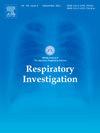Current treatment landscape for patients with non–small cell lung cancer with common EGFR mutations
IF 2.4
Q2 RESPIRATORY SYSTEM
引用次数: 0
Abstract
Common EGFR mutations including exon-19 deletions and the L858R point mutation in exon 21 constitute predominant actionable genomic alterations in individuals with non–small cell lung cancer (NSCLC). The introduction of EGFR tyrosine kinase inhibitors (TKIs) has fundamentally changed the treatment landscape for such patients by improving both progression-free survival (PFS) and overall survival (OS). Among EGFR-TKIs, third-generation agents such as osimertinib have shown marked efficacy and favorable safety profiles and have become the standard of care in the first-line setting. The combination of osimertinib with platinum-based chemotherapy has recently been shown to improve PFS compared with osimertinib monotherapy in the FLAURA2 trial. Similarly, the MARIPOSA trial demonstrated clinical benefit of the combination of the EGFR-MET bispecific antibody, amivantamab, with the third-generation EGFR-TKI, lazertinib, further supporting the use of combination therapies as first-line treatment for EGFR-mutated NSCLC. Despite these advances, however, challenges such as brain metastases remain substantial barriers to successful treatment outcomes. Management of patients with such metastases often requires a multidisciplinary approach that integrates systemic treatment with local interventions such as radiation therapy. Finally, circulating tumor DNA has emerged as a promising biomarker for real-time monitoring of treatment response and evolution of drug resistance mechanisms. Analysis of such biomarkers can facilitate dynamic and personalized therapeutic adjustments, potentially improving outcomes. This review provides a comprehensive overview of the latest clinical evidence supporting therapeutic advances in the management of EGFR-mutated NSCLC, emphasizing the importance of tailoring treatment strategies based on tumor biology, patient-specific factors, and evolving therapeutic options.
常见EGFR突变的非小细胞肺癌患者的治疗现状
常见的EGFR突变,包括外显子19缺失和外显子21的L858R点突变,构成了非小细胞肺癌(NSCLC)患者主要的可操作基因组改变。EGFR酪氨酸激酶抑制剂(TKIs)的引入通过改善无进展生存期(PFS)和总生存期(OS),从根本上改变了此类患者的治疗前景。在EGFR-TKIs中,第三代药物如奥西替尼已经显示出显著的疗效和良好的安全性,并已成为一线环境的标准治疗。最近在FLAURA2试验中,与奥西替尼单药治疗相比,奥西替尼联合铂基化疗已被证明可改善PFS。同样,MARIPOSA试验证明了EGFR-MET双特异性抗体amivantamab与第三代EGFR-TKI lazertinib联合使用的临床益处,进一步支持将联合疗法作为egfr突变NSCLC的一线治疗。然而,尽管取得了这些进展,脑转移等挑战仍然是成功治疗结果的重大障碍。此类转移患者的治疗通常需要多学科方法,将全身治疗与局部干预(如放射治疗)相结合。最后,循环肿瘤DNA已成为实时监测治疗反应和耐药机制演变的有前途的生物标志物。分析这些生物标志物可以促进动态和个性化的治疗调整,潜在地改善结果。本综述全面概述了支持egfr突变的非小细胞肺癌治疗进展的最新临床证据,强调了基于肿瘤生物学、患者特异性因素和不断发展的治疗方案定制治疗策略的重要性。
本文章由计算机程序翻译,如有差异,请以英文原文为准。
求助全文
约1分钟内获得全文
求助全文

 求助内容:
求助内容: 应助结果提醒方式:
应助结果提醒方式:


